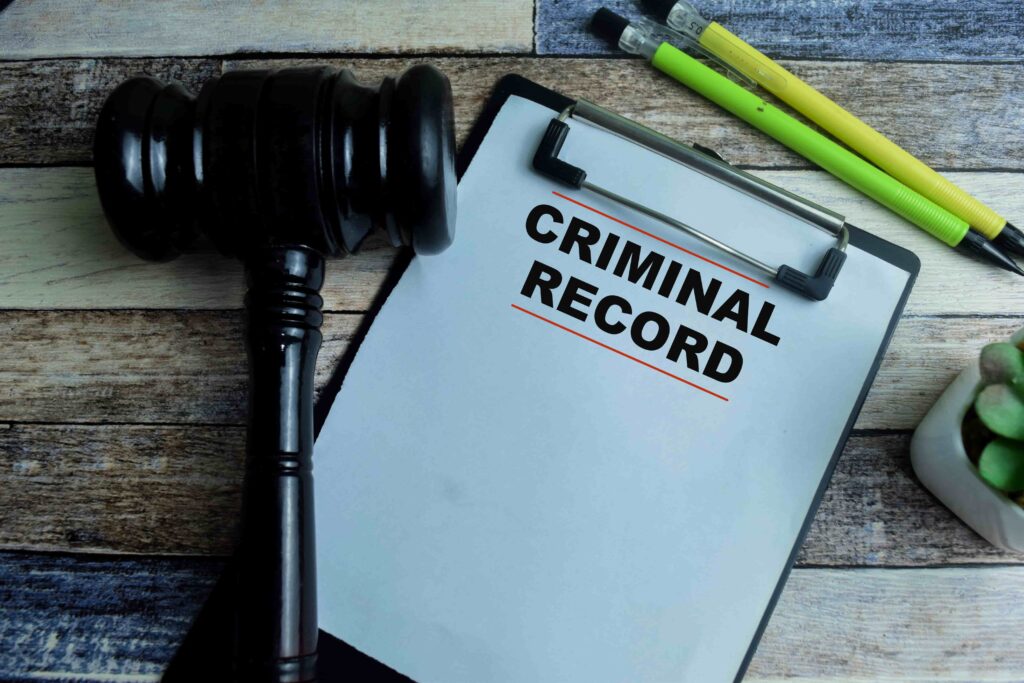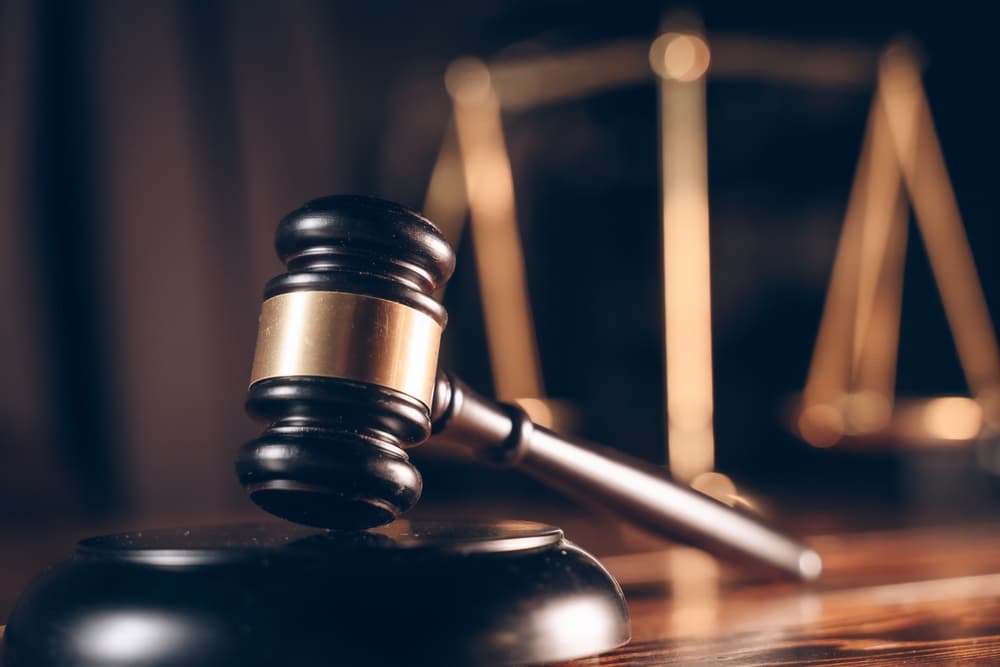In 2025, Texas introduced significant changes to its criminal laws that directly impact anyone facing charges in Fort Worth. These updates include stricter bail conditions for certain felonies, increased penalties for offenses like DWI and organized retail theft, and new procedures for clearing your record. These changes mean that securing release before trial may be more difficult, and the potential consequences for a conviction are more severe.
However, the updates also modify rules around expunctions, offering new ways to clear your name after a case is resolved. If you have a question about how these 2025 updates could affect your case, call Fulgham Hampton Criminal Defense Attorneys at (817) 877-3030.
Getting Out of Jail: A Look at Texas' New Bail Laws

For many facing charges in Fort Worth, the most immediate worry is getting out of jail to return to their family and job. New state laws for 2025 have changed the rules for how judges decide this, making the first few hours after an arrest more consequential than ever before.
What Is Senate Joint Resolution 5 (SJR 5) and How Does It Affect You?
A significant change is on the horizon with Senate Joint Resolution 5 (SJR 5), a proposed constitutional amendment that will be on the November 2025 ballot. If it passes, judges will gain the power to deny bail completely for people accused of certain violent felonies, including murder, aggravated assault, and sexual assault. This marks a departure from the long-standing principle that most defendants are entitled to pretrial release.
The new standard would require the prosecution to show with "clear and convincing evidence" that the person poses a continuing threat to public safety. Think of this standard as a higher bar than in a civil case. The judge must have a firm belief that the prosecution's claim is true. For a defendant in Tarrant County, this means a judge could decide you must remain in jail until your trial, even before any evidence has been presented to a jury.
How Does Senate Bill 9 Make Bail More Restrictive Right Now?
While SJR 5 is a future possibility, Senate Bill 9 (SB 9) is already impacting bail decisions for any felony charge. This law mandates that judges use a "Public Safety Report System" (PSRS) when setting bail. This system provides the judge with a detailed report of your criminal history and other risk factors, which will heavily influence their decision.
SB 9 also restricts a judge's ability to grant personal bonds—where you are released without having to pay money—for anyone accused of a violent crime or who has a prior conviction for a violent offense. The law is designed to limit the release of individuals deemed potentially dangerous, which places a greater burden on the accused to demonstrate they are not a risk.
Preparing For A Bail Hearing Under These New Rules
The bail hearing is no longer a simple formality. It has become the first and most important hearing in your case. The prosecution will use the Public Safety Report System and the new legal standards to argue for high bond amounts or, in some cases, no bond at all.
Our role is to counter these arguments by presenting a complete picture of who you are. We gather evidence of your ties to the community, such as your job, your family in Fort Worth, and your history of appearing for court dates. This information helps demonstrate to the judge that you are not a flight risk or a danger to the community, directly addressing the factors highlighted in the new public safety reports. A well-prepared argument at this initial stage makes the difference between returning home to your life and waiting for trial behind bars.
How Have Punishments Changed for Common Charges in 2025?
The Texas Legislature has also focused on increasing penalties for several common offenses.
Are DWI Penalties More Severe Now?
Yes, they are. Senate Bill 2320, which takes effect September 1, 2025, significantly increases the penalties for certain Driving While Intoxicated (DWI) offenses. For example, a standard first-time DWI, previously a Class B misdemeanor, is now elevated to a Class A misdemeanor. A DWI with a blood alcohol concentration (BAC) of 0.15 or higher is now a state jail felony, a substantial increase from its previous classification as a Class A misdemeanor.
These changes amend the foundational DWI law, Texas Penal Code Section 49.04. The goal of the legislature is clear: to deter drunk driving with more serious consequences. Fort Worth police actively patrol major roadways like I-35W and the Chisholm Trail Parkway, and an arrest here places you directly under these stricter penalty structures.
What Is "Organized Retail Theft" and Why Is Texas Cracking Down On It?
In response to significant financial losses from coordinated theft, Texas passed Senate Bill 1300. This law targets what is known as "organized retail theft." This isn't simple shoplifting. The law defines it as theft involving two or more people acting together, or theft on multiple occasions, typically with the intent to resell the stolen goods.
The new penalty structure is based on the total value of the stolen merchandise. This aggregation elevates a charge from a misdemeanor to a first-degree felony, which carries a potential sentence of up to 99 years or life in prison. The law, effective September 1, 2025, is designed to dismantle the criminal networks that profit from these large-scale theft operations.
Is Marijuana Still Illegal in Fort Worth?
While some cities adopt decriminalization policies, the reality in Tarrant County is that marijuana possession remains a crime that is actively prosecuted. There are no local "cite and release" policies for marijuana here.
Under the Texas Controlled Substances Act, marijuana is classified as an illegal substance. An arrest for even a small amount in Fort Worth leads to a criminal record and a driver's license suspension. That said, first-time offenders may have options. Tarrant County offers diversion programs like the Deferred Prosecution Program (DPP), which is designed for young, first-time offenders. Our Fort Worth Drug Crimes Lawyers determine if you are eligible for such a program, which could lead to the dismissal of your case.
Clearing Your Record: New Rules for Expunctions and Trials

What if you could legally erase an arrest from your past? A new law in 2025 changes how this process, known as expunction, works, opening a path for more people to achieve a clean slate.
How Does House Bill 4504 Change the Expunction Process?
An expunction is a legal process that results in the complete destruction of the records related to an arrest. Once an expunction is granted, you are legally permitted to deny the arrest ever occurred. House Bill 4504, a comprehensive bill aimed at modernizing criminal procedure, clarifies and streamlines the eligibility requirements for this effective legal tool.
The changes in HB 4504 may allow individuals who were previously ineligible to now qualify for an expunction. For example, the bill helps standardize procedures and may reduce waiting periods for certain offenses. However, obtaining an expunction is a paperwork-intensive process that must be executed perfectly to be successful. An error in the petition results in a denial, closing the door on this opportunity.
What Is a "Change of Venue" and Why Does It Matter?
House Bill 4504 also updates the procedures for a "change of venue." Simply put, this is a request to move a trial to a different county. This is typically done in high-profile cases where extensive local media coverage could make it difficult to find an impartial jury.
In a major metropolitan area like Fort Worth, a case sometimes attracts significant attention from news outlets and on social media. This pretrial publicity creates a situation where potential jurors have already formed an opinion about guilt or innocence before hearing any evidence. A change of venue is a fundamental legal tool designed to protect your constitutional right to a fair trial by an unbiased jury.
The first step toward a clean slate is determining if an old case is eligible for expunction under these new 2025 Texas criminal law updates. Our firm reviews your criminal history to see if these changes create an opportunity for you to clear your record and move forward with your life.
Fort Worth's Local Crime Policies: What You Need to Know

What Is the #Fortworthsafe Initiative?
The city's primary strategy for crime reduction, ongoing through 2025, is the #FortWorthSafe initiative. This program uses data-driven policing to target specific neighborhoods and focus on reducing violent crime. The efforts appear to be having an effect, with reports showing a significant drop in the overall crime rate in the second quarter of 2025.
What does this mean for you? If you are arrested in an area targeted by this initiative, you may face heightened police scrutiny and a more aggressive prosecution. The city's focus on driving down crime statistics means that prosecutors may be less inclined to offer lenient plea bargains as part of the broader public safety strategy.
Who Funds These Initiatives?
These local programs are largely funded by the Fort Worth Crime Control and Prevention District (CCPD). The CCPD is funded by a half-cent sales tax first approved by voters in 1995 and is overseen by a board of community leaders. This district allocates millions of dollars toward crime reduction strategies, including funding for additional police officers, equipment, and community-based prevention programs.
Frequently Asked Questions About 2025 Criminal Charges in Fort Worth
If SJR 5 Passes, Does It Mean No One Gets Bail for a Violent Felony?
No. It gives judges the option to deny bail if prosecutors prove with clear and convincing evidence that the person is a danger. It does not create an automatic ban. This change makes a strong, evidence-based defense at the initial bail hearing more important than ever.
I Was Arrested for Shoplifting. Do the New Retail Theft Laws Apply to Me?
They might. While SB 1300 focuses on "organized" theft, the prosecution may try to argue that your case fits the criteria, especially if they allege you were working with someone else or that it was part of a series of thefts.
Is It Possible to Get a DWI Charge Reduced in Tarrant County?
Whether a DWI is reduced depends entirely on the specific facts of your case. An Fort Worth DWI Lawyer will analyze all the evidence, including the reason for the traffic stop, the administration of field sobriety tests, and the maintenance records of the breathalyzer machine. If weaknesses are found in the state's case, it may be possible to negotiate for a lesser charge.
Since Crime Is Down in Fort Worth, Will Prosecutors Be More Lenient?
Not necessarily. A drop in the crime rate sometimes leads prosecutors to pursue the remaining cases even more aggressively to maintain the downward trend and support the city's public safety goals. Each case is evaluated on its own merits, not on broad statistics.
How Long Do I Have to Decide to Pursue an Expunction?
There are specific waiting periods, known as statutes of limitation, that must pass before you file for an expunction. These timelines vary depending on the level of the offense and how the case was resolved. The new provisions in HB 4504 may affect these timelines, so it is best to have your case reviewed to determine your specific eligibility window.
Protecting Your Future in a Changing Legal Landscape
Your future is too important to leave to chance. For a clear explanation of your rights and options under these new laws, call Fulgham Hampton Criminal Defense Attorneys today at (817) 877-3030.
About The Author:
Brandon Fulgham has an in-depth understanding of both Texas law and Texans themselves. Before practicing law here, he received his undergraduate degree from TCU and his law degree from South Texas College of Law in Houston. After graduation, he worked in District Attorneys’ offices as a prosecutor. Now, he uses that knowledge to anticipate opposing counsel’s arguments and protect the rights of people in and around Fort Worth. His work has been recognized by Expertise (Best Criminal Defense Lawyers in Forth Worth and Best DUI Lawyers in Fort Worth, both 2020), Fort Worth Magazine, and The National Trial Lawyers, just to name a few.
Author's Bio